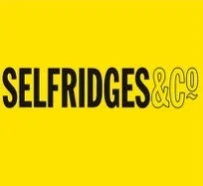How It Works
How much should you spend on a celebrant? That seems like a question that you’ve come here to answer
The right celebrant can make or break your funeral or wedding. One of the greatest complaints that funeral directors receive is that the celebrant didn’t seem like they knew the person.
Research and Design (8 hours)
My work as a celebrant begins with getting to know the person at the centre of the funeral, or the couple who are getting married. This happens over a combination of in-person and online meet ups accompanied by some forms, so that I really understand what is needed on the day.
Content Creation and Refinement (8 Hours)
My work as a celebrant begins with getting to know the person at the centre of the funeral, or the couple who are getting married. This happens over a combination of in-person and online meet ups accompanied by some forms, so that I really understand what is needed on the day.
Delivery on the Day (8 Hours)
My work as a celebrant begins with getting to know the person at the centre of the funeral, or the couple who are getting married. This happens over a combination of in-person and online meet ups accompanied by some forms, so that I really understand what is needed on the day.
The same amount of time goes into a wedding or a funeral but, for some strange reason, funeral celebrants are paid a fraction of the rate of wedding celebrants. This is despite the job being harder and, arguably, more important.
In light of this, my rate for funerals is 25% less than my wedding rate (give me a year or so to change that).
Wedding Cost - £100 / hour
Funeral Cost - £75 / hour
As far as I can tell this makes me the most expensive funeral celebrant in Britain - and great value at the price.
I never want to be doing two funerals in a day, or juggling multiple grieving families. When I’m with you. I will be with you.
No one else will be able to do what I can for you and your loved one. My dedication to creating a bespoke service for you will be unparalleled.
What is lifefulness?
Lifefulness is a practice that was developed at Sunday Assembly, the international award-winning, community building charity. Sunday Assembly adapted the techniques and tools pioneered by congregational communities (churches, mosques, temples and the like) in a way that is inclusive to all, and shown to improve wellbeing.
Today the Lifefulness methodology is being used in the workplace to create belonging and meaning for all.
what you’ll get
‘The Power Hour’ is an hour of activities and ideas that are designed to unleash the positive neurochemicals that create personal bonds, reduce anxiety and increase flow states.
This leads to:
Closer connections between your team
Individuals connecting to their own purpose
A chance to clear stresses and mental blocks
Everyone tapping into positivity and creativity
why am i doing it?
My mission is to bring Lifefulness into the corporate world because everyone should be able to find meaning and belonging at work - making happier people, and more effective businesses.
Part of this is creating new formats, like the Power Hour. It’s worked in other places and settings, so further pilots in the workplace are the perfect next step.
The goal is that once established in the world of work, the practice can then spread to schools, care homes, healthcare and wherever else people come together to make things happen.
No matter what happens, you and your team will be glowing with positivity and ready to work together to achieve great things.














